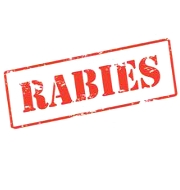National Action Plan for dog Mediated Rabies Elimination by 2030 (NAPRE)
Union Minister for Health and Family Welfare, Mansukh Mandaviya and Minister of Fisheries, Animal Husbandry and Dairying, Parshottam Rupala released the “National Action Plan for Dog Mediated Rabies Elimination by 2030 (NAPRE)” on the occasion of “World Rabies Day” on September 28, 2021
Key Points
- This action plan was introduced as a roadmap to eliminate rabies by 2030.
- On the occasion, ministers also launched the “Joint Inter-Ministerial Declaration Support Statement” in order to eliminate of dog-mediated rabies from India by 2030 following the approach of one health.
- Government is now focusing on taking steps for reducing health risks caused by animals, due to the rapid increase in animal-induced diseases like Covid-19.
About National Action Plan for dog Mediated Rabies Elimination (NAPRE)
The NAPRE was drafted by the National Centre for Disease Control (NCDC) in association with the Ministry of Fisheries, Animal Husbandry, and Dairying. Its approach for elimination of rabies is based on recommendations of several international agencies WHO and the Global Alliance of Rabies Control (GARC). It was prepared on the basis of 5 major pillars- political will, intersectoral planning, sustained funding, community planning, coordination & review, and operational research.
Aim of the NAPRE
NAPRE has been launched with the aim of reducing human deaths, caused due to dog-mediated rabies, to zero by 2030. This aim will be achieved through sustained mass dog vaccination and appropriate post-exposure treatment.
Status of Rabies in India
Rabies is a vaccine-preventable viral disease. It occurs in more than 150 countries and territories. Primary source of the Rabies are Dogs. Human rabies deaths contribute up to 99% of all rabies transmissions in humans. India is endemic for rabies, accounting for 36% of total deaths across the world.
Month: Current Affairs - September, 2021


